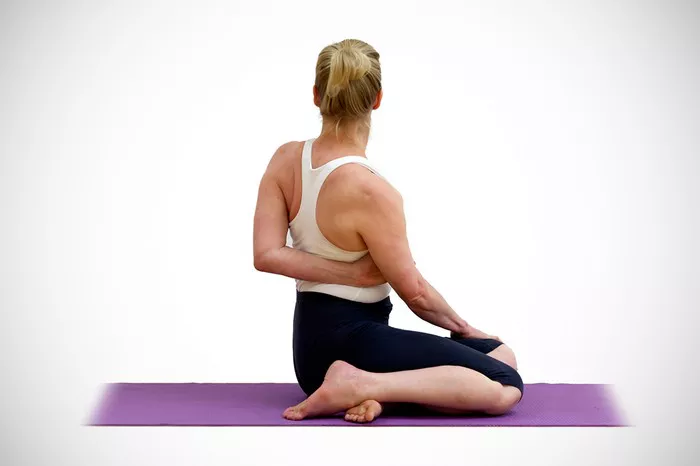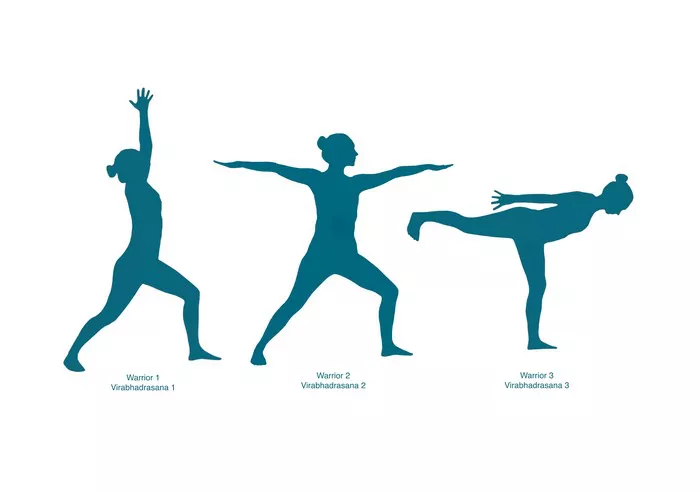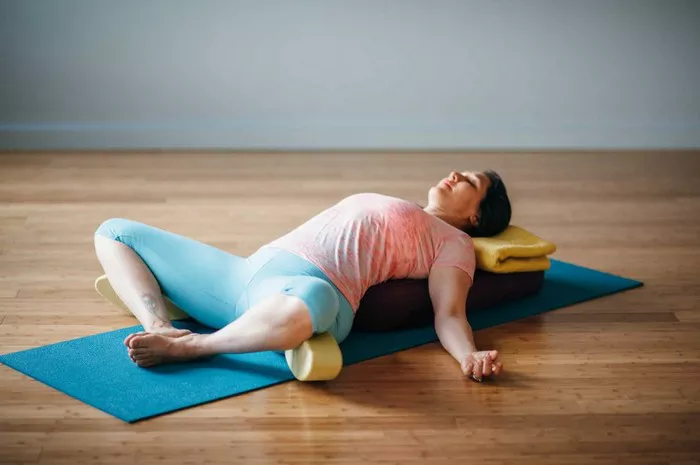Polycystic Ovary Syndrome (PCOS) is a common hormonal disorder among women of reproductive age, affecting approximately 5-10% of women worldwide. It is characterized by imbalanced hormone levels, irregular menstrual cycles, and the presence of small cysts on the ovaries. Managing PCOS involves a multifaceted approach, including lifestyle modifications such as diet and exercise. Yoga, with its gentle yet effective movements, can be particularly beneficial for women with PCOS. In this article, we explore 14 of the best yoga poses specifically targeted to alleviate symptoms associated with PCOS.
1. Surya Namaskar (Sun Salutation)
Surya Namaskar is a sequence of 12 yoga poses performed in a flowing manner, synchronizing breath with movement. It helps improve circulation, stimulates the reproductive organs, and regulates hormone levels, making it beneficial for women with PCOS.
2. Bharadvajasana (Bharadvaja’s Twist)
This seated twist stretches the spine, shoulders, and hips while stimulating the abdominal organs. It improves digestion, reduces stress, and may help regulate menstrual cycles in women with PCOS.
3. Baddha Konasana (Bound Angle Pose)
Baddha Konasana opens the hips and groin, relieving tension and stiffness. It also stimulates the ovaries and uterus, promoting hormonal balance and reproductive health.
4. Balasana (Child’s Pose)
Balasana is a restorative pose that calms the mind and relieves stress. It gently stretches the lower back and hips, alleviating discomfort associated with PCOS.
5. Ustrasana (Camel Pose)
Ustrasana stretches the entire front of the body, including the abdomen and chest. It improves circulation to the reproductive organs and may help regulate menstrual cycles.
6. Setu Bandhasana (Bridge Pose)
Bridge Pose strengthens the back, buttocks, and thighs while opening the chest and hips. It stimulates the thyroid and abdominal organs, potentially aiding in hormone regulation for women with PCOS.
7. Janu Sirsasana (Head-to-Knee Forward Bend)
This seated forward bend stretches the spine, hamstrings, and groins. It stimulates the liver and kidneys, supporting detoxification processes essential for hormonal balance.
8. Virabhadrasana II (Warrior II Pose)
Warrior II strengthens the legs and opens the hips, chest, and shoulders. It improves circulation and may help alleviate symptoms of PCOS by promoting overall physical and mental well-being.
9. Ardha Chandrasana (Half Moon Pose)
Ardha Chandrasana improves balance and strengthens the legs, abdomen, and buttocks. It also stimulates the abdominal organs, promoting digestion and hormone balance.
10. Uttanasana (Standing Forward Bend)
Uttanasana stretches the hamstrings and calves while calming the mind and relieving stress. It improves circulation to the pelvic region, supporting reproductive health in women with PCOS.
11. Paschimottanasana (Seated Forward Bend)
Seated Forward Bend stretches the spine, hamstrings, and lower back, promoting relaxation and reducing stress. It also stimulates the ovaries and uterus, potentially aiding in hormonal balance.
12. Viparita Karani (Legs-Up-the-Wall Pose)
Legs-Up-the-Wall Pose is a restorative inversion that promotes relaxation and relieves fatigue. It improves circulation to the pelvic region and may help regulate menstrual cycles in women with PCOS.
13. Matsyasana (Fish Pose)
Fish Pose opens the chest, throat, and abdomen while stretching the neck and shoulders. It stimulates the thyroid and pituitary glands, supporting hormone balance and reproductive health.
14. Pranayama (Breathing Exercises)
Pranayama techniques such as Bhramari (Bee Breath) and Nadi Shodhana (Alternate Nostril Breathing) can help reduce stress and balance the nervous system, promoting overall well-being for women with PCOS.
Conclusion
Incorporating these yoga poses into a regular practice can provide physical, mental, and emotional benefits for women with PCOS. However, it’s essential to consult with a healthcare professional before starting any new exercise regimen, especially if you have specific health concerns or conditions. With consistent practice and proper guidance, yoga can be a valuable tool in managing PCOS and improving overall quality of life.






















